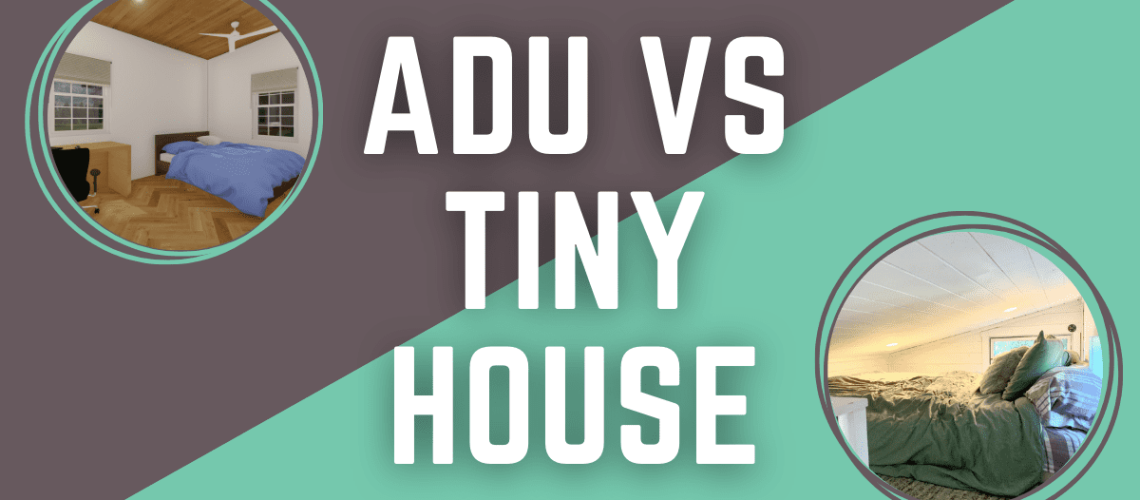The real estate market has witnessed drastic changes these past years. One of them is the increase of innovative architecture and design. For instance, homebuyers are getting more interested in non-traditional living spaces. Two of the most notable ones are ADUs and tiny homes.
Many factors contribute to the popularity of tiny homes and ADUs. Most notably, they are more practical and affordable than a traditional house. In addition, they perfectly align with the minimalist way of life.
However, there is a difference between ADUs and tiny homes. Read on to discover how they differ and cross paths, and which is better for you and your family.
What Is an ADU?
The official name of an ADU is “Accessory Dwelling Unit”. You might also encounter terms like “granny flat”, “secondary suites”, or “accessory apartments”. In essence, they are a dwelling unit built on a piece of land where there is already a single-family home. They can be detached or attached to the initial house.
Different states have limitations on the size of your ADU. However, they are much smaller than a traditional house. For instance, Chattanooga regulations allows ADUs up to 700 sqft. People typically use ADUs as creative studios, guest rooms, secondary flats for their children, and home offices. The ADU can be pre-made and delivered on the property or built on site. In any case, it must stand on a foundation.
Pros & Cons
Pros
- Increase property value
- Some states allow homeowners to rent them out
- Provide additional livable space
- Perfect for large families
- Less legal complications than tiny houses
Cons
- Cannot be mobile
- Depend on the existence of another house
- Generally smaller in size
What Is a Tiny House?
Tiny homes are one of the most popular investments among younger homebuyers. To be qualified as a tiny house, the structure must be smaller than 600 sqft. The average US tiny home has 225 sqft which is 8 times less than a traditional home.
The best thing about tiny houses is that they can be mobile. Unlike ADUs, tiny homes can stand on either wheels or a foundation in the ground.
If you choose a tiny home with wheels, you can move it whenever you please. But there is a downside to them which mainly considers legalities. For instance, mobile tiny houses are considered as RVs, so you can’t rent them out to make profit. However, you won’t have these issue if you choose a tiny house with a foundation.
Pros & Cons
Pros
- Reducing living costs (electricity, water, maintenance)
- More affordable than a traditional home
- Allow mobility
- Eco-friendlier (less energy and waste during construction)
Cons
- Potential legal issues
- You need to own land to build one
- Impractical for large families
Which Is Better?
Every family has different needs! Both ADUs and tiny houses are a great option. But, you should carefully revaluate your situation before choosing either of them. For instance, if you already have a single-family home, an ADU might be smarter. If you are looking for a minimalist lifestyle on a small piece of land, opt for a mobile tiny house!
In some cases, you won’t even have to choose between the two! Why? Because a tiny house can become an ADU. This can happen if it’s on a foundation instead of wheels, and if it’s built on the property of your single-family home.
Whatever you decide, remember that success depends on quality. So, for building your ADU or tiny house, always choose reputable contractors like Chattanooga ADU.








